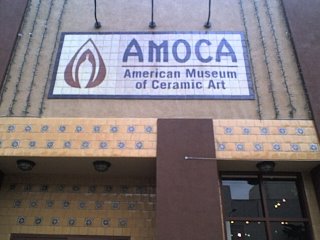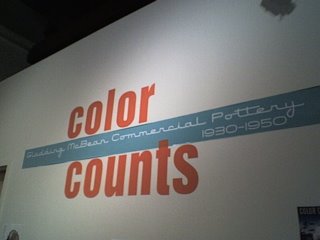I've been writing over at
my other blog about the theology of the proper roles for women and men.
As a quirk of "google" searches, it would seem the
one post I had here pertaining to IV Press' position on the subject is getting more hits than
this post over there.
So I've cut and pasted with a few tweaks from the other site and pasted on this site and I'll be watching the site-tracker to see what happens!
8=8=8=8=8=8=8=8
Previously, I blogged
briefly about the question of whether women should be allowed to be pastors.
Here is a longer follow-up post.
From my research to this date, there appears to be a spectrum of views:
(1) Women can teach men and exercise authority in the church and be pastors
(2) Women can teach men and exercise authority in the church and be pastors but must be under the supervision of a male senior pastor
(3) Women can teach men and exercise authority in the church but not be pastors and must be under the supervision of male leadership
(4) Women can teach children and other women but not adult men, exercise a limited amount of authority and, of course, not be pastors.
Position one is held by the egalitarians and position four is held by the complementarians. Positions #2 and #3 are in between and I'm not sure what they would call themselves.
Both sides claim that Scriptures support their position. The complementarians can add that they have history and tradition on their side in addition to Scriptures.
As I see it, there are four areas of contention within the Biblical texts. I'll start from the least informative and move to what I believe are the most dispositive texts.
Exceptional WomenDeborah was an OT Judge in Judges 4. Priscilla was one half of the power couple Priscilla and Aquila (see various passages in the NT). Junias was one half of the power couple of Junias and Andronicus (Romans 16:7). There are various other women in the NT who were involved in the life of the church.
Egalitarians will cite these women as examples of God planting the seeds and paving the way for women to take up more significant roles as the yoke of culturally imposed male-dominated societies fade away with time. Neither side disputes the radicalness, for their times, of how Jesus interacted with women and Paul's frequent commendations of women in his letters.
Complementarians will say Deborah was part of OT narrative so it was descriptive but not proscriptive. They will say the roles of Priscilla and Junias are not known. They were highly respected but it wasn't clear they were elders in the fledgling church. They may have been prayer warriors but not preachers. They may have served tea and cookies but not communion. We simply don't know what they did.
My view: We will have to ask Pricilla and Junias what they did when we meet them in the kingdom. We simply don't know what they did. Thus, to me, neither side scores any points on the evidence.
If Jesus had selected a woman to be among the 12 there would be no questions on this issue. If the NT recorded an incident where a woman preached there would be no doubt on which view is right. But the facts are that neither are part of our Scriptures. However, if we feel history and tradition are dispositive than the burden falls on the egalitarians to provide more justification to overturn precedent.
Prophesying and prophetessesPeter in Acts 2 cited Joel 2 where the Spirit is poured out and "sons and daughters shall prophesy."
And indeed, it came to pass as we find out Philip's daughters were prophetesses (Acts 21:8-9). Paul mentions the gift of prophecy and that women have that gift in I Corinthians and men and women should exercise them within proper order.
The complementarians will point out that the act of prophesying in the NT was more casual than the OT. It appeared to be episodic and limited in extent. Because that, they feel it does not rise to the same level as authoritative teaching presented by elders and pastors which would be regular and extensive instruction.
Egalitarians counter by saying, teaching is teaching whether the setting is small or big, public or private, long or short in length.
My view: Again we are faced with the dimness of detail. When a woman or man for that matter offered a prophecy in the church, what did she/he actually do? Did she offer an example from her own life experience how some spiritual teaching had affected her? Did she issue a challenge to obedience by citing a teaching from Jesus? Did she offer up a prediction about some future event?
We simply do not know exactly what prophecy entailed in the NT context. In the OT context, the prophets usually warned, shape up or we are going to get it!
We do not know if the "exceptional women" in the prior point engaged in prophecy (episodic and limited) teaching or authoritative (regular and extensive) teaching within the context of the "house churches" that were probably the model of the early church. Some will dispute those distinctions which is part of the problem in the dialog on these issues: we can't even agree what constitutes teaching and whether there are gradations of teaching which then brings in elements of authority.
Neither side really scored big points with me on this aspect; maybe a slight edge to the egalitarians. Clearly, in the OT, prophecy was almost exclusively male (Deborah and Miriam were the exceptions) but in the NT, the door is opened widely to women. Has God planted the seed with the Acts 2/Joel 2's promise of the Spirit which will flower into something greater with time? It is an inference the egalitarians ride like a wave on a surfboard while the complementarian has to diminish.
I Timothy 2The most contentious debate is over the famous passage in 1 Timothy:
A woman should learn in quietness and full submission. I do not permit a woman to teach or to have authority over a man; she must be silent. For Adam was formed first, then Eve. And Adam was not the one deceived; it was the woman who was deceived and became a sinner. But women will be saved through childbearing - if they continue in faith, love and holiness with propriety.The complementarian says a plain reading of this text bars women from teaching and authority in the church.
The egalitarian says, wait a minute, the Greek language is a bit more subtle than the English translation. Here is an analysis offered by
Ben Witherington heavy on the Greek. Also, another take is given by
Greg Koukl.
Witherington argues from the Greek that the ban might be temporary because of the word choice translated into "do not permit." He also argues that the word choice for "authority' here is unusual. And he also brings in some of the cultural-historical context to support the local nature of the problem which makes Paul's instruction temporary.
Koukl offers the idea that the context of the passage is about the marriage relationship.
My view: It is all GREEK to me! 8-)
Koukl's view is an interesting one. If the context of childbearing is controlling then he might be right to limit the preceding to marriage. However, if the controlling context is prior (instructions about dress codes) then it is likely to be a wider injunction to women which renders Koukl's view inoperative. The chapter 3 context is church leadership. The context of the beginning of chapter 2 appears to be prayer in the assembly. Thus, Koukl's view in my view falls short.
As for Witherington, what can I say?
If you ask John MacArthur and John Piper to exegete the exact same Greek text they will come up with the exact opposite conclusion. How is an average lay person like myself supposed to decide what is the correct interpretation?
Going back to the beginningBoth sides cite Adam and Eve at the beginning of the human experiment for support.
Which part of the creation of Adam and Eve is the controlling Scriptural paradigm?
The Egalitarians cite Genesis 1:28,
God blessed them and said to them, "Be fruitful and increase in number; fill the earth and subdue it. Rule over the fish of the sea and the birds of the air and over every living creature that moves on the ground." They point out that the couple were equally responsible to carry this out.
The Complementarians cite the Genesis 2 account where Adam was created first and Eve was created as the suitable helper. They argue that men and women are equal in the eyes of God but they have different roles.
My view: There is no question that human experience tells us that men and women are different. They are especially different in their response to authority and how they exercise it. So there is no doubt in my mind that in the realm of personal relationships, those differences will be pronounced.
C.S. Lewis argued in his book Mere Christianity that from a common sense point of view, in a marriage, you can have a 1-1 tie vote on an issue. Thus, someone needs to be the one who decides. Lewis believed from observing human behavior that in practice the husband usually makes the decision and husbands who are cowed by their wives are often pitied and viewed unfavorably by others.
Thus, in the realm of marriage, someone has to be in charge. The Complementarians then extend this to the church. Some more ardent Complementarians would also extend this to society at large while more moderate Complementarians believe women's role in society has more liberty.
Is there a final answer?
When we meet God we will find out.
It would appear that this part of the discussion is at the heart of the issue. The reality is that we live in a fallen world where men abuse women by exercising authority harshly and women fight back with the feminine wiles they have. Christian teaching and morality seeks to move away from the sinful pattern toward ... what?
The Egalitarians believe the goal is full equality as described in Genesis 1.
The Complementarins believe the goal is full equality but with distinctive roles for men and women as described in Genesis 2.
But in the meantime, what do we do?
By we, I mean those of us who don't know which side is right?
Does this come down to another example of the mind justifies what the heart choses?
One can choose a position and find and fit the data to support it.
I believe there is objective truth. But I also acknowledge sometimes it isn't always so easy to find or it maybe more complicated than we can comprehend.
The debate rages on. I suppose on Monday, Wednesday and Friday I'm a complementarian. On Tuesday, Thursday and Saturday I'm an egalitarian. On Sunday, I rest before God and don't think about this!



















